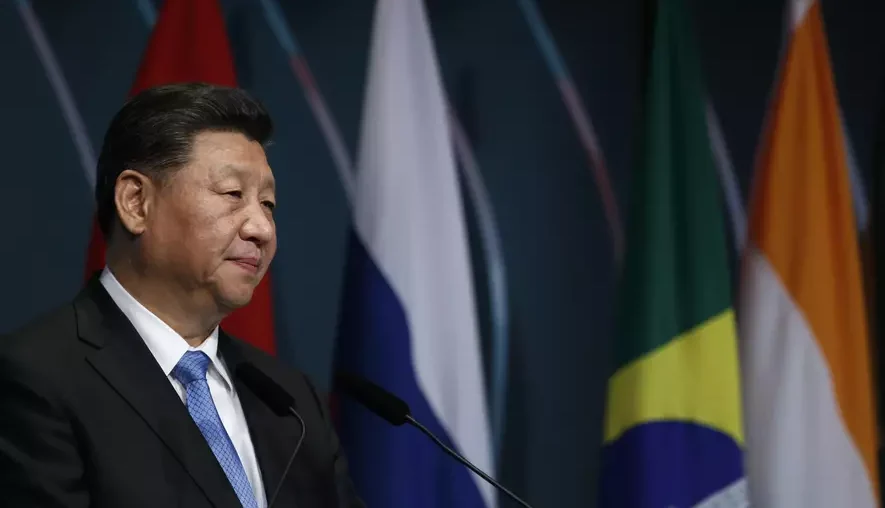(Analysis) Xi Jinping’s recent call for Brazil and China to “sail together” signals more than diplomatic pleasantries. The Chinese leader’s statement comes at a crucial moment when both countries seek to reshape global economic power dynamics.
The numbers speak clearly. China buys $120 billion worth of Brazilian goods annually, making it Brazil’s biggest customer for 15 straight years. This trade relationship has transformed Brazil’s economy, particularly its agricultural sector.
Behind these impressive figures lies a strategic reality. China needs Brazil’s resources to feed its massive population and fuel its industries. Brazil, in turn, relies on Chinese investments to modernize its infrastructure and expand its economic reach.


Yet this partnership extends beyond simple buyer-seller dynamics. Both countries share a common goal: challenging the Western-dominated global financial system. They want to reform institutions like the IMF and World Bank to give developing nations more influence.
The timing of Xi’s statement proves significant. As global supply chains shift and trade tensions rise, Brazil and China see an opportunity to strengthen their position. Their combined economic weight could influence everything from commodity prices to international trade rules.
“Time to Sail Together”: Why Xi Jinping’s Call for Closer Brazil-China Ties Matters
Chinese investments in Brazil tell another important story. Chinese companies have moved beyond buying raw materials. They now invest in Brazilian energy projects, technology ventures, and infrastructure development. These investments create jobs and transfer technology.
Trade statistics reveal a crucial detail. While Brazil sells mostly commodities to China, it buys manufactured goods in return. This imbalance concerns Brazilian industrialists who compete with cheaper Chinese products.
Both nations face practical challenges in deepening their ties. Brazil must balance its relationship with China against its traditional alliance with the United States. China needs to address Brazilian concerns about industrial competition.
The partnership’s future depends on addressing these challenges. New opportunities in green technology and digital innovation could help balance the relationship. These sectors offer potential for more equal exchanges.
Xi’s vision of “sailing together” reflects a practical truth: Brazil and China need each other. Their partnership, built on economic necessity rather than ideology, has survived political changes in both countries. This resilience suggests their relationship will continue to shape global trade patterns for years to come.
This alliance matters because it shows how economic interests trump political differences in modern international relations. As traditional power structures shift, the Brazil-China partnership offers a model for cooperation between major developing economies.

